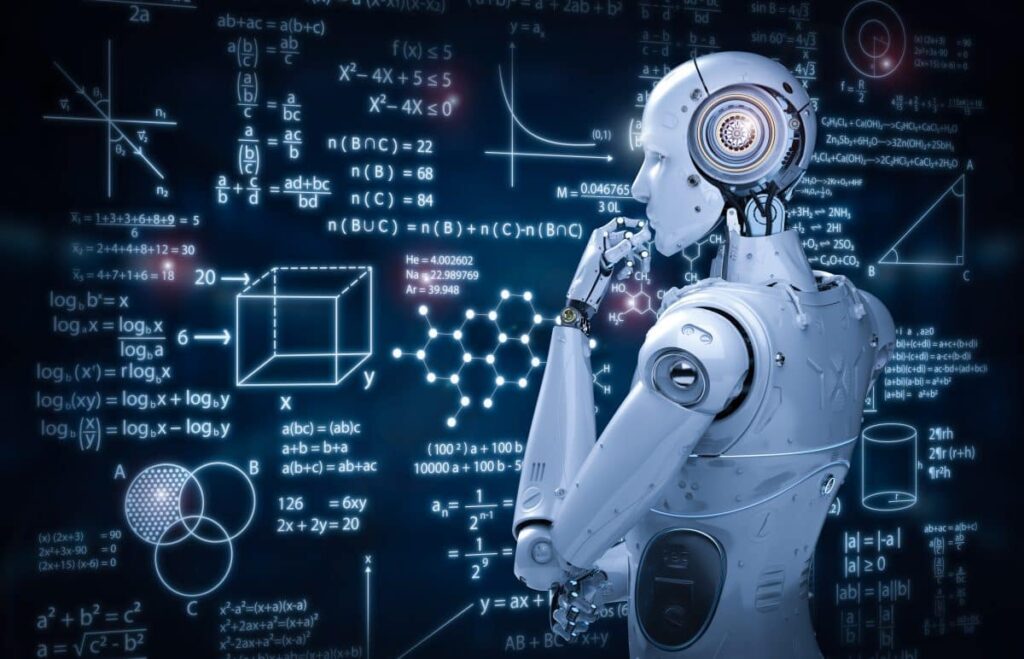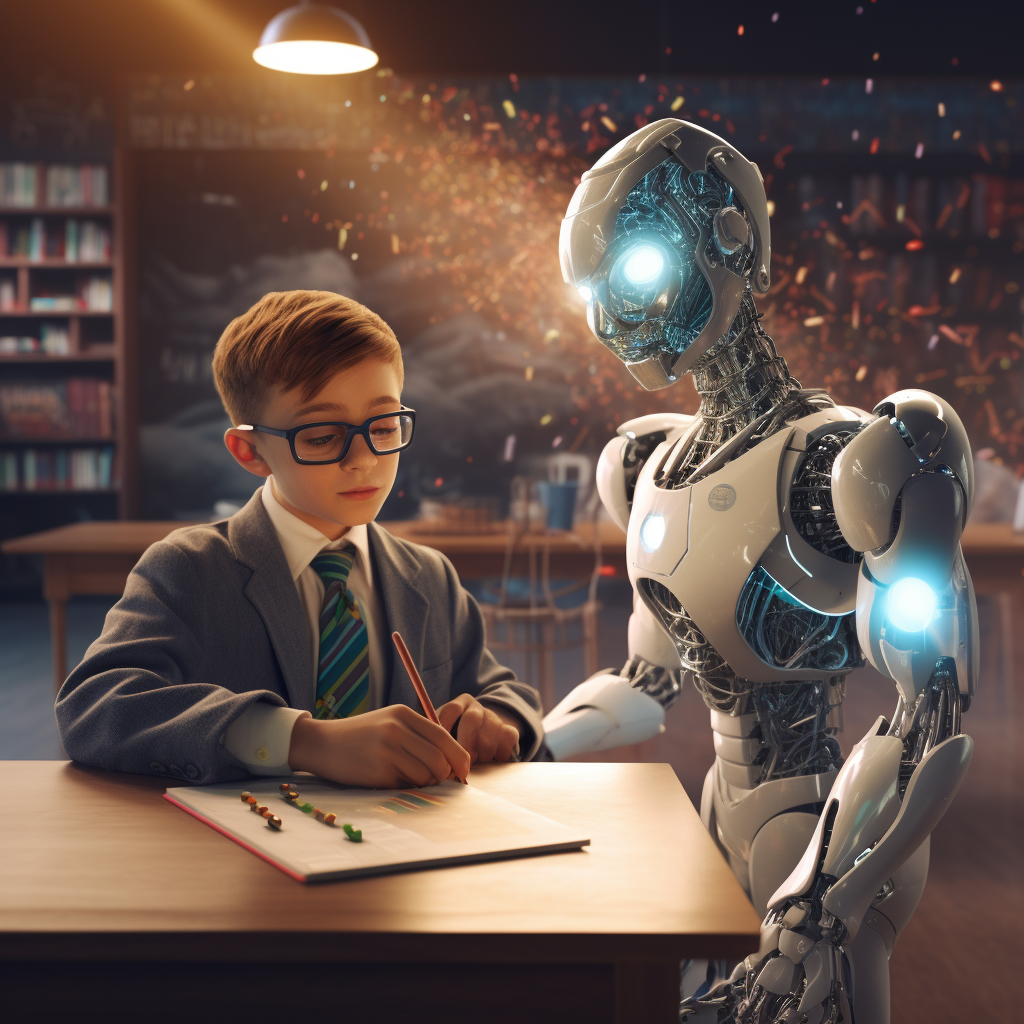Table of Contents
Artificial Intelligence (AI) is poised to revolutionize education in profound ways. From personalized learning experiences to advanced administrative support, AI’s integration into education is inevitable. However, how Artificial intelligence will change the education system and its impact on higher education is still unfolding. The question remains: Is AI the end of education as we know it, or is it an opportunity to redefine it?

How Will AI Change the Education System?
AI’s potential to transform education is immense, touching every aspect of the learning environment. Here’s a detailed look at how AI will shape the education system:
Personalized Learning
AI can offer highly personalized learning experiences. Through machine learning algorithms, AI can analyze a student’s performance, preferences, and learning style to tailor educational content accordingly. Adaptive learning platforms use Artificial Intelligence to adjust the difficulty of exercises based on individual progress, ensuring that each student receives a customized education that meets their unique needs.
Intelligent Tutoring Systems
AI-powered tutoring systems provide students with on-demand assistance. These intelligent systems can offer explanations, answer questions, and provide feedback in real time, mimicking the experience of having a personal tutor available 24/7. This technology helps bridge the gap between classroom learning and personalized support, making high-quality education more accessible.
Automated Administrative Tasks
Administrative tasks such as grading, scheduling, and student assessments can be time-consuming for educators. Artificial Intelligence can automate these processes, freeing up valuable time for teachers to focus on instruction and student engagement. AI systems can grade assignments, generate reports, and even assist in scheduling, streamlining administrative functions, and improving overall efficiency.
Data-Driven Insights
Artificial Intelligence can analyze vast amounts of educational data to uncover trends and insights that might not be immediately apparent. Educators can use these insights to identify at-risk students, understand learning patterns, and make data-driven decisions to enhance teaching strategies. By leveraging AI, educational institutions can improve their approach to student success and curriculum development.
Enhanced Engagement through Interactive Learning
AI technologies, such as virtual and augmented reality, can create immersive learning experiences that engage students in new and exciting ways. Interactive simulations and gamified learning environments make complex concepts more accessible and enjoyable. These tools can enhance student motivation and retention, transforming traditional learning methods into dynamic, interactive experiences.

How Will Artificial Intelligence Affect Higher Education?
AI’s impact on higher education is particularly significant, as it brings about several transformative changes:
Revolutionizing Research
Artificial Intelligence accelerates research by analyzing large datasets, identifying patterns, and generating insights that would be time-consuming for humans to uncover. Researchers in higher education can leverage AI to expedite data analysis, improve research methodologies, and drive innovation across various fields of study. AI-powered tools can also assist in literature reviews and the synthesis of research findings.
Supporting Academic Advising
AI-driven academic advising systems can offer personalized guidance to students based on their academic history, career goals, and interests. These systems can help students make informed decisions about course selections, career paths, and extracurricular activities. By providing tailored advice, AI can enhance the overall academic experience and support student success in higher education.
Enhancing Online Learning
The rise of online education has been accelerated by AI technologies. AI can improve the quality of online learning platforms by offering personalized recommendations, interactive content, and real-time feedback. As more institutions embrace online education, AI will play a crucial role in delivering engaging and effective virtual learning experiences.
Streamlining Admissions and Enrollment
AI can simplify the admissions and enrollment processes by automating application reviews, assessing eligibility, and predicting student success. This efficiency not only speeds up the admissions process but also helps institutions identify and recruit students who are most likely to thrive in their programs. AI-driven tools can also assist in managing enrollment processes and optimizing class schedules.
Facilitating Lifelong Learning
In an ever-evolving job market, lifelong learning is becoming increasingly important. AI can support lifelong education by providing personalized learning pathways, recommending relevant courses, and offering flexible learning options. By integrating AI into lifelong learning initiatives, higher education institutions can help individuals continuously develop new skills and stay relevant in their careers.

Is AI the End of Education?
The question of whether AI represents the end of education is complex. While AI has the potential to transform many aspects of education, it is not necessarily the end of traditional learning. Instead, AI offers an opportunity to enhance and evolve education in several ways:
Augmenting, Not Replacing Educators
AI is unlikely to replace educators but rather to augment their roles. Teachers will continue to be essential for providing emotional support, fostering critical thinking, and facilitating social interactions. AI can assist educators by handling repetitive tasks and providing data-driven insights, allowing teachers to focus on the human aspects of teaching.
Preserving Educational Values
Education encompasses more than just knowledge transfer; it involves the development of critical thinking, creativity, and interpersonal skills. AI can support these aspects by offering personalized learning experiences and interactive tools, but the core values of education remain intact. The role of educators in nurturing these values will continue to be vital.
Addressing Ethical and Equity Concerns
The integration of AI into education raises ethical and equity concerns. Issues such as data privacy, algorithmic bias, and access to technology must be addressed to ensure that AI benefits all students equally. As AI becomes more prevalent in education, it is crucial to implement safeguards and policies that promote fairness and transparency.
Embracing a New Paradigm
Artificial Intelligence represents a shift in the educational paradigm rather than an end to education. By embracing AI, educators, institutions, and policymakers can explore new ways of teaching and learning that align with the demands of the modern world. AI has the potential to create more efficient, personalized, and engaging educational experiences, but it requires thoughtful implementation and collaboration.
Conclusion
Artificial Intelligence will undoubtedly change education, but how it does so depends on the choices we make today. AI offers many opportunities to enhance education, from personalized learning and intelligent tutoring to transforming higher education and supporting lifelong learning. While AI may raise questions about the future of traditional learning, it also presents an opportunity to redefine and enrich educational experiences. By embracing AI’s potential and addressing its challenges, we can shape a future where education evolves to meet the needs of a rapidly changing world.
How will AI change the education system?
Artificial Intelligence will change the education system by personalizing learning experiences, automating administrative tasks, providing intelligent tutoring, and offering data-driven insights. These advancements will create a more tailored and efficient learning environment, enhance student engagement, and streamline educational operations.
What impact will artificial intelligence have on higher education?
Artificial intelligence will impact higher education by revolutionizing research methodologies, supporting academic advising, enhancing online learning platforms, streamlining admissions processes, and facilitating lifelong learning. AI tools will assist in data analysis, provide personalized academic support, and improve the overall educational experience for students and institutions.
Is AI the end of traditional education?
No, AI is not the end of traditional education. Instead, it represents an opportunity to augment and enhance traditional learning methods. AI will support educators by automating tasks and providing personalized learning experiences, but the core values of education, such as critical thinking and interpersonal skills, will remain essential.
How can educators ensure that AI is used ethically in education?
Educators can ensure the ethical use of AI in education by addressing concerns related to data privacy, algorithmic bias, and equitable access to technology. Implementing transparent policies, involving diverse stakeholders in decision-making, and continuously monitoring AI systems will help promote fairness and ethical practices.
What role will AI play in lifelong learning?
Artificial Intelligence will play a significant role in lifelong learning by offering personalized learning pathways, recommending relevant courses, and providing flexible learning options. AI-powered tools will help individuals continuously develop new skills and stay updated with evolving industry demands, supporting ongoing education throughout their careers.
How can institutions prepare for the integration of AI in education?
Institutions can prepare for the integration of AI in education by investing in training for educators, adopting AI tools and technologies, and developing clear policies for their use. They should also ensure that AI systems are designed to be inclusive and equitable, involve stakeholders in planning, and continuously assess the effectiveness and ethical implications of AI applications in their educational practices.